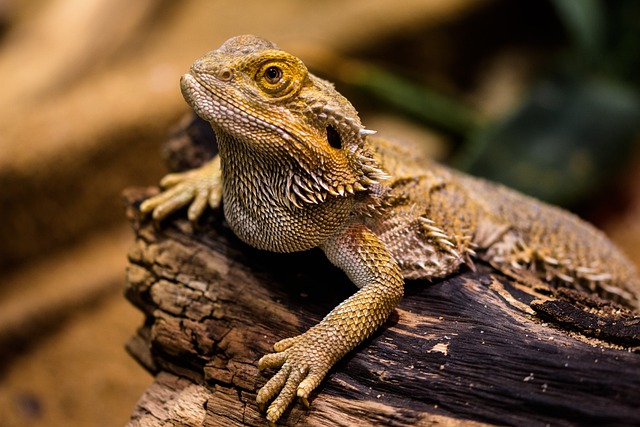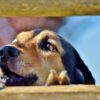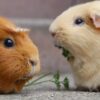Bearded dragons, also known as “beardies,” are one of the most popular reptile pets in the United States. These lizards have a unique appearance, friendly personality, and are easy to care for, which makes them ideal for beginners and experienced reptile enthusiasts alike.
But as with any pet, proper care and maintenance are essential for a healthy and happy life for your bearded dragon. In this article, we will discuss everything you need to know about caring for your bearded dragon, including their diet, habitat, and common health issues.
Diet and Feeding
Bearded dragons are omnivores, which means they eat both animal and plant-based foods. A balanced diet that contains protein, vegetables, and fruits is essential for your bearded dragon’s health.
When it comes to protein, insects such as crickets, mealworms, and dubia roaches are great options. Some pet stores also sell feeder insects that are gut-loaded with calcium and other nutrients, making them an excellent food source for your bearded dragon.
The size of the insects you feed your bearded dragon should be no larger than the width of their head. This is to prevent choking, gastrointestinal blockages and other digestive problems.
Some good vegetables and fruits to feed your bearded dragon include collard greens, dandelion greens, butternut squash, berries, and melons. Shredded carrots, apples, and strawberries can be given as treats, but they should not represent a significant part of your bearded dragon’s diet.
It is important to note that bearded dragons require a source of UVB lighting to properly digest their food and absorb calcium. Without proper UVB lighting and calcium supplementation, your beardie can develop metabolic bone disease (MBD), which can be fatal. A high-quality calcium supplement should be added to your bearded dragon’s diet at least once a week.
Habitat and Enclosure
Bearded dragons require a spacious enclosure with proper heating and lighting. A minimum of a 40-gallon tank is recommended for a single adult bearded dragon. A tank that is too small can cause stress and other health problems. The enclosure should have a basking spot with a temperature gradient from 90 to 105 degrees Fahrenheit and a cool spot between 75 to 85 degrees Fahrenheit.
Choose the substrate of the enclosure carefully. Bearded dragons can choke on loose substrates like sand, and they can cause respiratory issues. The ideal flooring options include non-adhesive shelf liner, ceramic tiles, paper towels, and reptile carpet.
A hide box and climbing branches should be provided in the enclosure to provide your bearded dragon with privacy and a place to climb. Bearded dragons are semi-arboreal, which means they like to bask and climb on branches. Be sure to choose sturdy and safe branches that can support your beardie’s weight.
Health Issues
Bearded dragons are one of the healthiest reptile species, but they can develop health issues if proper care is not provided. Some common health issues include metabolic bone disease, respiratory infections, and parasites.
MBD occurs when your bearded dragon does not have access to proper UVB lighting, or they aren’t eating enough calcium-rich foods. Symptoms of MBD include weakness, twitching, and soft bones. Early detection is crucial for successful treatment. If you suspect that your bearded dragon has MBD, contact your veterinarian immediately.
Respiratory infections are common in bearded dragons when their enclosure is not cleaned properly, and they inhale fecal matter. Symptoms include wheezing, coughing, nasal discharge, and lethargy. If your bearded dragon is experiencing these symptoms, it is essential to isolate them, clean their enclosure thoroughly, and contact your veterinarian.
Parasites such as mites and ticks can be transmitted to your bearded dragon through contact with wild reptiles or contaminated food. Symptoms of infestation include scratching, weight loss, and lethargy. Vet-prescribed treatments like topical insecticides and antiparasitic medication can be used to treat infestations.
General Care and Maintenance
Overfeeding of bearded dragons can lead to obesity, which can cause various health problems like respiratory distress, liver disease, and shortened lifespan. Make sure you feed your bearded dragon appropriately sized portions that are in line with their age, weight, and size.
Regular visits to the veterinarian are essential for preventive health care and early disease detection. Adult bearded dragons should be examined at least once a year, while younger bearded dragons require more frequent check-ups.
It is also essential to keep the enclosure clean by removing feces, urine, and uneaten food daily. Change the water in the enclosure daily, and provide clean, fresh water.
Handling Your Bearded Dragon
Bearded dragons are known for their docile nature, which makes them great pets for people of all ages. However, proper handling is necessary to prevent injury to the lizard and ensure its overall health and happiness.
When handling your bearded dragon, it is essential to support their entire body and avoid excessive force. Start by gently stroking their head and neck to let them get used to the sensation.
Once your bearded dragon is comfortable, you can lift them up and support their body with your hands. Avoid picking them up by the tail, as this can cause them to drop their tail, which is a defense mechanism.
So, with proper care and attention, your bearded dragon can live a long and healthy life. By providing a balanced diet, a spacious enclosure, and regular veterinary care, you can ensure their health and happiness for years to come. With these tips in mind, you’ll be well on your way to becoming an expert in bearded dragon care and providing the best possible care for your lizard friend.




